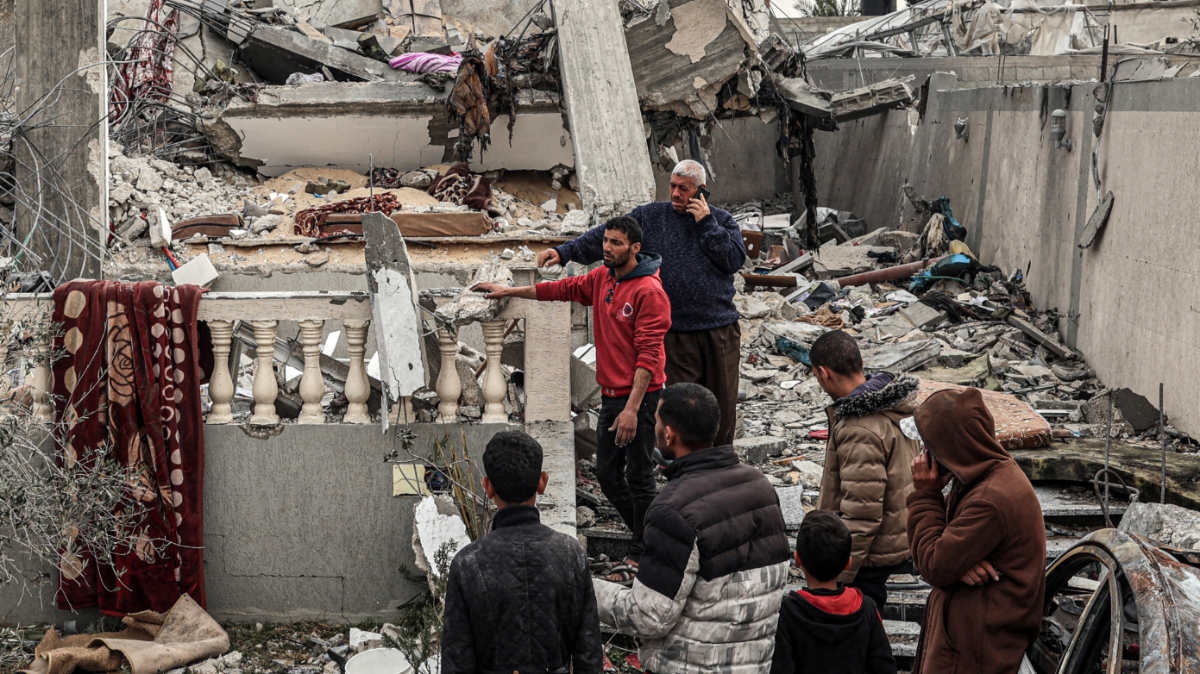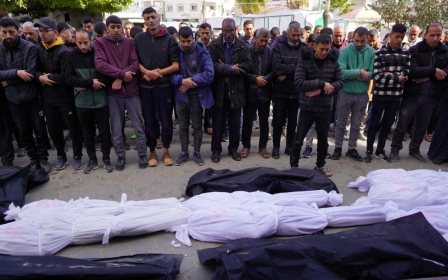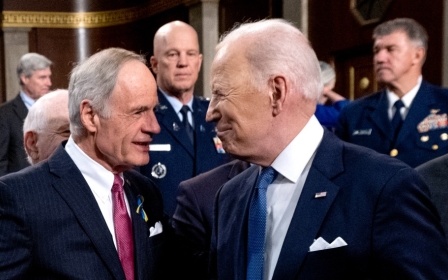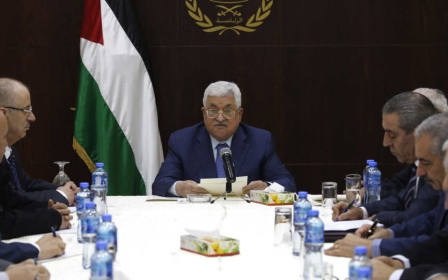War on Gaza: US-Israel row escalates over UN ceasefire resolution

Israel says Hamas rejected a hostage deal on the back of the UN Security Council resolution calling for a ceasefire in Gaza, which the US did not veto, sparking a new row with the Biden administration.
Israeli Prime Minister Benjamin Netanyahu’s office said that Hamas’s insistence that a hostage deal happens as part of a permanent ceasefire in Gaza and the withdrawal of Israeli troops "attests to the damage done by the UN Security Council's resolution”. He added that it "rebuffed all US offers for a compromise”.
State Department spokesperson Matthew Miller directly contradicted the Israeli leader’s office, saying on Tuesday that Hamas had prepared its response to Israel’s proposal before the UN vote, labelling the statement “inaccurate in almost every respect and unfair to the hostages and their families”.
The blame game between allies comes a day after the US abstained from voting at the UN Security Council on a resolution that called for an immediate ceasefire in Gaza during the holy month of Ramadan, without conditioning it on the return of hostages held in the besieged enclave.
In a remarkable public threat against the Biden administration just before the vote, Netanyahu’s office threatened to cancel the visit of a senior Israeli delegation to Washington, if the US didn’t use its veto power at the UN to shield it from international censure at the UN.
Stay informed with MEE's newsletters
Sign up to get the latest alerts, insights and analysis, starting with Turkey Unpacked
After the vote, Netanyahu followed through on his pledge to cancel the visit of Israeli national security advisor Tzachi Hanegbi and Strategic Affairs Minister Ron Dermer to Washington to discuss options that would avoid a full-scale Israeli ground invasion of Rafah, the southern Gaza border town where about 1.5 million Palestinians are sheltering.
Analysts told Middle East Eye that Monday’s UN vote was a watershed of sorts because it marked the first “empirical data point” of the US exercising its tangible leverage against Israel amid rising frustration with its war on Gaza.
Austin and Gallant meet
The differences between Israel and the US were underscored at a meeting Tuesday with Israel’s defence minister, Yoav Gallant, and US Defence Secretary Lloyd Austin at the Pentagon.
Gallant said he was in Washington to secure more weapons systems and ammunition from the US.
Austin opened the meeting by saying, "In Gaza today, the number of civilian casualties is far too high, and the amount of humanitarian aid is far too low.”
The US’s decision to abstain at the UN Security Council is unlikely to appease critics of the US’s support for Israel’s war on Gaza, which has killed more than 32,000 people, mainly women and children, according to Palestinian health officials.

The Biden administration has continued to provide Israel with a steady supply of weapons despite months of simmering tensions.
A US official said after the meeting that Austin discussed his hopes that negotiations would lead to the release of the roughly 130 hostages Israel believes are still being held in Gaza.
The US official also said that Austin discussed ways to find an "alternative to a full-scale and perhaps premature military operation" in Rafah, suggesting that the US is still leaving itself open to support military action in the enclave teeming with refugees, short of a full-scale ground assault.
Hamas’s political leader made a rare high-profile visit to Iran on Tuesday, where he said Israel was experiencing "unprecedented political isolation”.
Israel is "losing political cover and protection even in the Security Council", he said, adding that "the US is unable to impose its will on the international community”.
Meanwhile, in Israel, politicians lined up to criticise the US for Monday’s decision at the UN, with Israeli Foreign Minister Israel Katz saying the US had made a “moral and ethical mistake” by not vetoing the Security Council resolution.
Israel also continued to pummel the besieged Gaza Strip. On Tuesday, Palestinian health officials said at least 12 people, including children, were killed after Israel struck a tent full of displaced people in southern Gaza.
Israel’s threat to follow through on an invasion of Rafah comes as the UN warns that Palestinians in the north of the Mediterranean strip of land are on the verge of “imminent famine”.
Middle East Eye delivers independent and unrivalled coverage and analysis of the Middle East, North Africa and beyond. To learn more about republishing this content and the associated fees, please fill out this form. More about MEE can be found here.




